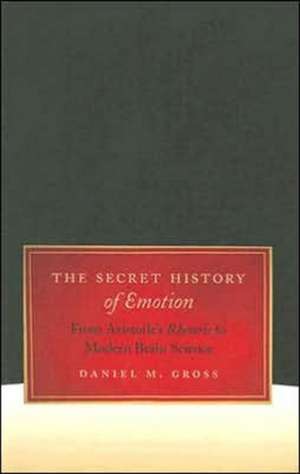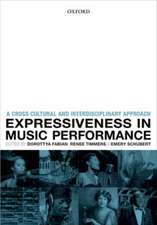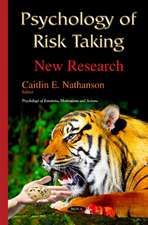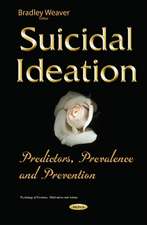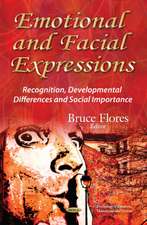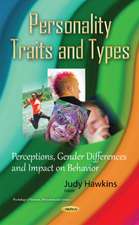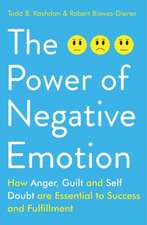The Secret History of Emotion: From Aristotle's Rhetoric to Modern Brain Science
Autor Daniel M. Grossen Limba Engleză Paperback – 15 oct 2007
Princess Diana’s death was a tragedy that provoked mourning across the globe; the death of a homeless person, more often than not, is met with apathy. How can we account for this uneven distribution of emotion? Can it simply be explained by the prevailing scientific understanding? Uncovering a rich tradition beginning with Aristotle, The Secret History of Emotion offers a counterpoint to the way we generally understand emotions today.
Through a radical rereading of Aristotle, Seneca, Thomas Hobbes, Sarah Fielding, and Judith Butler, among others, Daniel M. Gross reveals a persistent intellectual current that considers emotions as psychosocial phenomena. In Gross’s historical analysis of emotion, Aristotle and Hobbes’s rhetoric show that our passions do not stem from some inherent, universal nature of men and women, but rather are conditioned by power relations and social hierarchies. He follows up with consideration of how political passions are distributed to some people but not to others using the Roman Stoics as a guide. Hume and contemporary theorists like Judith Butler, meanwhile, explain to us how psyches are shaped by power. To supplement his argument, Gross also provides a history and critique of the dominant modern view of emotions, expressed in Darwinism and neurobiology, in which they are considered organic, personal feelings independent of social circumstances.
The result is a convincing work that rescues the study of the passions from science and returns it to the humanities and the art of rhetoric.
Through a radical rereading of Aristotle, Seneca, Thomas Hobbes, Sarah Fielding, and Judith Butler, among others, Daniel M. Gross reveals a persistent intellectual current that considers emotions as psychosocial phenomena. In Gross’s historical analysis of emotion, Aristotle and Hobbes’s rhetoric show that our passions do not stem from some inherent, universal nature of men and women, but rather are conditioned by power relations and social hierarchies. He follows up with consideration of how political passions are distributed to some people but not to others using the Roman Stoics as a guide. Hume and contemporary theorists like Judith Butler, meanwhile, explain to us how psyches are shaped by power. To supplement his argument, Gross also provides a history and critique of the dominant modern view of emotions, expressed in Darwinism and neurobiology, in which they are considered organic, personal feelings independent of social circumstances.
The result is a convincing work that rescues the study of the passions from science and returns it to the humanities and the art of rhetoric.
Preț: 255.63 lei
Nou
Puncte Express: 383
Preț estimativ în valută:
48.92€ • 50.54$ • 40.71£
48.92€ • 50.54$ • 40.71£
Carte tipărită la comandă
Livrare economică 25 martie-08 aprilie
Preluare comenzi: 021 569.72.76
Specificații
ISBN-13: 9780226309804
ISBN-10: 0226309800
Pagini: 204
Ilustrații: 1 halftone
Dimensiuni: 140 x 216 x 15 mm
Greutate: 0.29 kg
Editura: University of Chicago Press
Colecția University of Chicago Press
ISBN-10: 0226309800
Pagini: 204
Ilustrații: 1 halftone
Dimensiuni: 140 x 216 x 15 mm
Greutate: 0.29 kg
Editura: University of Chicago Press
Colecția University of Chicago Press
Notă biografică
Daniel M. Gross is associate professor of rhetoric at the University of Iowa. He is coeditor of Heidegger and Rhetoric.
Cuprins
Acknowledgments
Introduction: A New Rhetoric of Passions
1. Early Modern Emotion and the Economy of Scarcity
2. Apathy in the Shadow Economy of Emotion
3. Virtues of Passivity in the English Civil War
4. The Politics of Pride in David Hume and David Simple
5. Thinking and Feeling without a Brain: William Perfect and Adam Smith's Compassion
Index
Introduction: A New Rhetoric of Passions
1. Early Modern Emotion and the Economy of Scarcity
2. Apathy in the Shadow Economy of Emotion
3. Virtues of Passivity in the English Civil War
4. The Politics of Pride in David Hume and David Simple
5. Thinking and Feeling without a Brain: William Perfect and Adam Smith's Compassion
Index
Recenzii
“The Secret History of Emotion is a masterful revisionist account of the role of passion in the Western tradition. Daniel Gross describes the radical transformation of a public rhetorical conception of emotion into an internalized psychological view that has become the generally accepted physiological theory of emotional states. The Secret History of Emotion presents an incisive narrative argument that will surely inspire more reevaluations of our contemporary genealogies of affects.”--Steven Mailloux, University of California, Irvine
“With The Secret History of Emotion, Daniel Gross has achieved what I thought impossible: he compresses into these pages a compelling history of emotion from Aristotle to today. His argument that there exists a great tradition of understanding the emotions as a psychosocial phenomenon is cogent, coherent, and interesting from beginning to end. This is a remarkable book.”--David Konstan, Brown University
“Daniel Gross’s The Secret History of Emotion is a brilliant example of the newest new rhetoric. Gross takes on an uncritical, ahistorical, biologically justified theory of the emotions, and shows how partial and impoverished is such a representation. He offers an exhilaratingly critical intellectual history of the passions in a tightly argued engagement that reveals new possibilities for invention, for political engagement in the present and future. Pointing to the turn from seventeenth-century political rhetoric to eighteenth-century psychology, Gross’s argument launches a powerful critique of those who would naturalize the passions, offering instead a historically grounded, critical, theoretically astute, and above all social account of the emotions. His new rhetoric of the passions with admirable brevity demolishes banal received ideas that limit the imagination of social change.”--Page duBois, University of California, San Diego
“Gross's deft and remarkable book should be required reading for neurobiologists and, of course, for humanists of every school. Gross reminds us that emotions are rarely private. Most feelings, rational or ‘irrational,’ and all expressions of feeling, are obviously and irreducibly social.”--Stephen Pender, Times Literary Supplement
"If indeed Aristotle was correct to propose that rhetoric is the art of finding the available means of persuasion, Daniel M. Gross has done an excellent job of making such means available in his new study of emotion. . . . Gross is a splendid writer--insightful and moving. This text is accessible, even for those unfamiliar with affect theory, and, in fact, it may be the perfect place to start your reading if you are interested in the history of emotion and how affect theory might enrich your own work."
